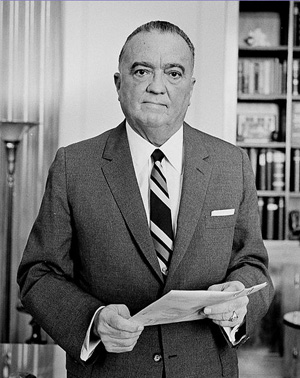This article is more than 1 year old
Blame WWI, not Bin Laden, for NSA's post-9/11 intel suck
War, peace and paranoia in modern US
Outrage and... shrugs
The response to Snowden has generally gone one of two ways: you're scandalised and outraged or you believe it's simply business as usual - that spies spy. The fact there are even two ways of responding is important because during a national crisis national security is held as paramount - often trumping the democratic beliefs they are supposed to protect. During most national crises, there'd be a tendency bury the outrage and see the situation as acceptable - as business as usual.
What the US government was doing during WWI might have been excused easily by US civilians of the time, who mostly trusted their government, argues Strauss. "They saw the government as a possible check upon capitalism run rampant, business corruption, poverty and sanitation, vice and so on. Many progressives, while not all agreeing on what social reforms were needed to cure society, agreed that government was the tool that could successfully implement such social reforms," Strauss said.
Importantly, a deep-rooted suspicion against anything that smacked of socialism was also implanted in the American psyche as a result of WWI.

J Edgar Hoover: I see enemies, everywhere
Both facts had profound implications in an environment where there was no framework governing the surveillance state and where surveillance became a key tool of the FBI under its most famous director, J Edgar Hoover. Under Hoover, who was director from 1924 to 1972, the FBI turned from a purely crime-fighting organisation to a surveillance operation and the technology and techniques the US had honed against Germany and perceived German supporters at home were turned on the "enemy within" during World War II and the post-war years of the 1950s, '60s and '70s
Hoover ensured the FBI was in charge of domestic surveillance during the Second World War, once again focusing upon socialists and those he deemed under their influence. The Civil Rights Movement came under surveillance but in many ways this was an extension of the so-called "Negro Subversion Files" - extremely detailed records kept of individuals considered dangerous to the government dating from WWI. In the post-war civil rights era, Hoover kept watch on notables such as Martin Luther King, believing he posed a threat to domestic stability.
Strauss says:
With the military-industrial complex in full swing during the Cold War, partnerships with private businesses, public universities, and more, agents read mail, tapped phones, went undercover, etc. to sniff out dissent, communism, or groups they perceived to be too supportive of civil liberties and freedoms to the detriment of national security. Once again, the same issues as during the First World War reared their ugly head. The same story would play itself out in the 1980s and would pick-up full-swing in the 21st Century with the War on Terror.
9/11 took place 13 years ago, but the consequences of that single act have been so on-going and penetrated so far into our daily consciousness it feels like they have been with us forever - endless war (Afghanistan and Iraq), regional Al-Quaeda attacks, no outside liquids on airliners, taking your trainers off at airport metal detectors. Welcome to the new normal.
It would be easy and convenient to blame US mass surveillance on 9/11, too, but you can't pin that twin-tower attack mastermind Osama Bin Laden. Industrial-scale surveillance is a fact of the modern US. It's just been waiting for another chance to shine. ®
